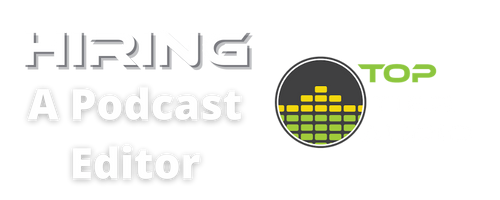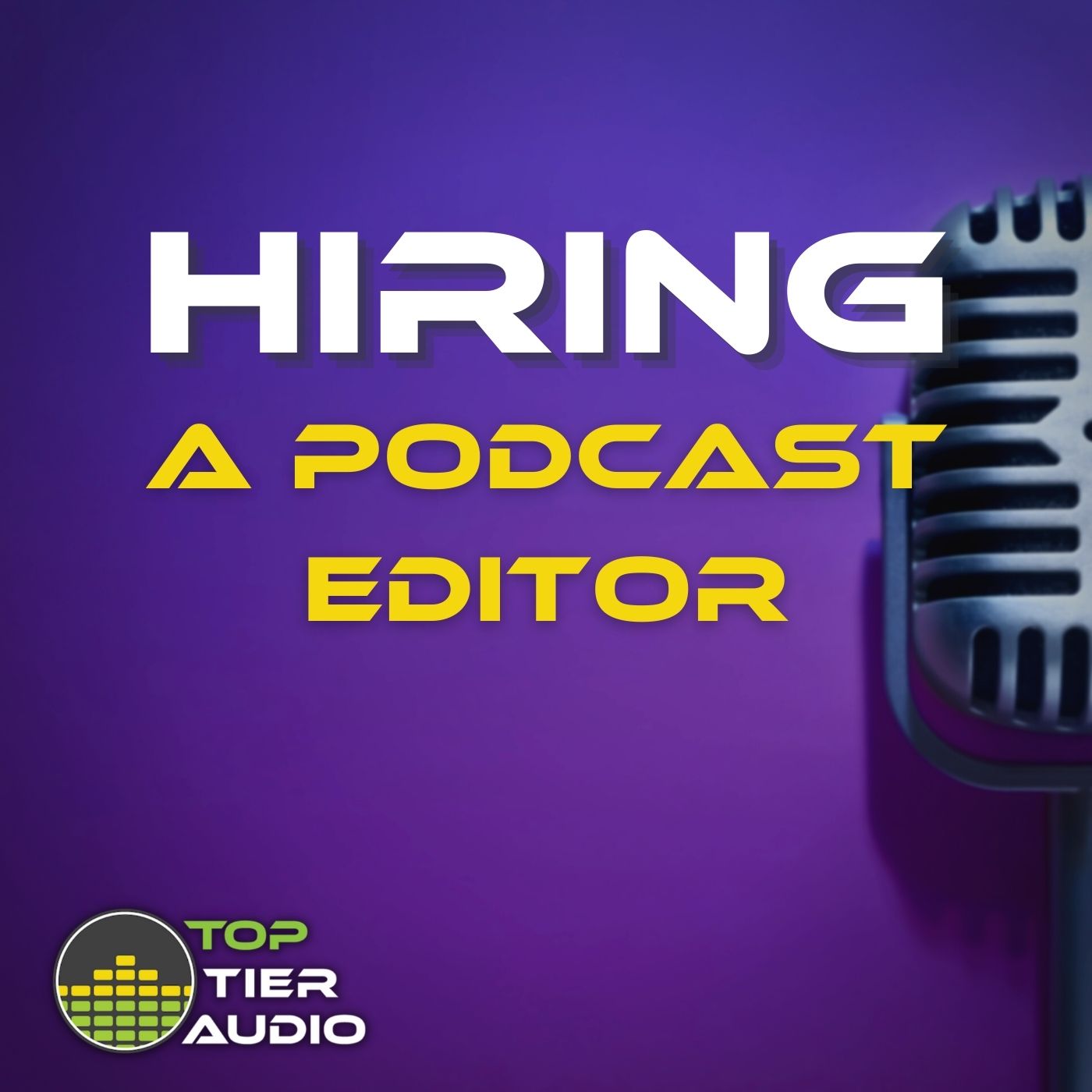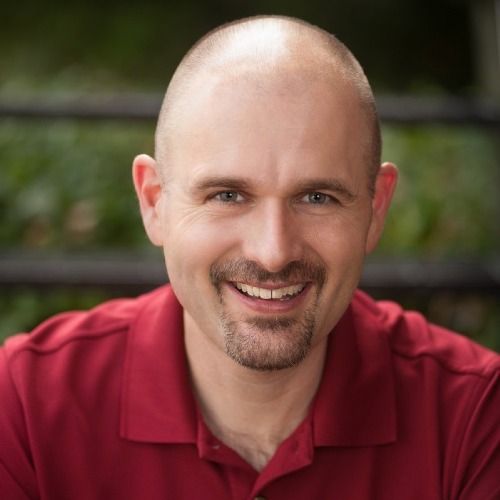Episode 2
How to Describe Your Podcast to An Editor
When it comes time to describe your podcast to a potential podcast editor, you want to make sure that you have all your bases covered. You don't want to end up with that "deer in the headlights" feeling; you want to be relaxed, confident, and able to engage fully.
But what are the important topics to cover? What should you say? How do you know if you're missing anything?
Listen to this episode of Hiring a Podcast Editor to discover what's most important, and download the free guide "15 Questions to Ask Before Hiring a Podcast Editor" so that you can move forward with confidence.
Links & Resources
Links & Resources
- Podcasters' Roundtable - The Podcasters' Round Table is often a panel discussion format.
- 2GuysTalking Podcast Network - Mike Wilkerson LOVES to create what he calls the "101 Episode," which is a great perspective on what an "Episode Zero" can be.
- Christian Woman Leadership Podcast - The Christian Woman Leadership Podcast varies between monologues, cohosted episodes, solo interviews, and team interviews.
- Focusrite Pro Podcast - The Focusrite Pro Podcast started out publishing every other week on an ongoing basis, and is transitioning to a seasonal production schedule.
Listen to Hiring a Podcast Editor
Hiring a Podcast Editor website
Mentioned in this episode:
Try Boomcaster for your podcast recording and streaming.
If you're going to record your podcast while streaming live with cohosts or guests, you need a way to capture great recordings. Boomcaster offers an excellent livestreaming experience, and also captures high-quality audio and video recordings. You can pre-schedule your livestreams to Facebook, YouTube, or LinkedIn. Or all of them if you would like. Use the promo code 'TOPTIER' or the link in the show notes to get 20% off your purchase. And if you do that, you'll also be helping the show (and I'd appreciate that). Boomcaster is what I recommend to capture a great recording while streaming.
15 Questions to Ask Before Hiring a Podcast Editor
If you want to get the clarity you need to avoid a hiring mistake with your podcast, you will want to grab this free guide. No email required. We just want you to make the best decisionfor yourself and your show.
Sponsored by Top Tier Audio
Check out Top Tier Audio! We offer professional podcast production for coaches, trainers, and consultants.
This podcast uses the following third-party services for analysis:
OP3 - https://op3.dev/privacy
Transcript
Have you ever been in that place where you are wondering how to describe your podcast to somebody?
Bryan Entzminger:Maybe they came up to you and said, "Tell me about your podcast."
Bryan Entzminger:Now, imagine how much more stressful that might be if you were actually talking to a podcast editor about potentially
Bryan Entzminger:taking on some work for your show and they said, "Hey, tell me about your show," and then you didn't know what to.
Bryan Entzminger:Welcome to Hiring a Podcast Editor my name is Bryan Entzminger.
Bryan Entzminger:I'm a podcast, editor and manager at TopTierAudio.com.
Bryan Entzminger:This show is intended to help you be able to find the right podcast editor for you, whether you're
Bryan Entzminger:looking for your first editor Or your next editor.
Bryan Entzminger:In season one, we're going to help you get clarity on what you really want before you start
Bryan Entzminger:connecting with editors and then provide you with the tools to make the right decision for yourself.
Bryan Entzminger:This show is sponsored by TopTierAudio.com, where we provide podcast production services for
Bryan Entzminger:multi-passionate coaches, trainers, and consultants.
Bryan Entzminger:Be sure to stick around to the end, and I'll tell you how you can get a free tool to help you organize
Bryan Entzminger:your thoughts and make sure you don't anything.
Bryan Entzminger:When it comes time to describe your podcast to a potential editor, you want to make sure
Bryan Entzminger:that you have all of your bases covered.
Bryan Entzminger:You don't want to end up feeling like a deer in the headlights when they say, "Hey, tell me about your show."
Bryan Entzminger:You want to be able to be relaxed and confident and fully engaged in that conversation.
Bryan Entzminger:And so part of that is going to be making sure that you've done some of the pre-work to make sure
Bryan Entzminger:that you know, how you want to describe your show.
Bryan Entzminger:You want to think some of that through.
Bryan Entzminger:But if you've never done this before, you might not be sure what you want to talk about - what would be important to an editor.
Bryan Entzminger:And of course, as an editor, I'm happy to share with you some of those things that are important.
Bryan Entzminger:Some things that might be important to cover.
Bryan Entzminger:And also in case you might miss something, just make sure that we talk about these.
Bryan Entzminger:Now, of course, I'm not necessarily going to hit everything.
Bryan Entzminger:I'm going to share some of the things that might be important to me or some of the people that I know.
Bryan Entzminger:It's not possible to cover everything, but maybe we don't necessarily need to get everything because the
Bryan Entzminger:reality is, if you're talking to an astute editor, they're going to help guide you through the process too.
Bryan Entzminger:But if you've got your thoughts kind of lined up, then it makes it easier.
Bryan Entzminger:So, in terms of describing your show to a potential editor, I like to think of it in kind of two broad categories.
Bryan Entzminger:And of course there are kind of some subcategories as well.
Bryan Entzminger:But in the first broad category, I'm thinking of it in terms of describing your show, like you might describe it to a potential
Bryan Entzminger:listener or to a potential advertiser or something like that, where you're saying, "I want to tell you about my show."
Bryan Entzminger:I'm going to talk about what's the goal of the show?
Bryan Entzminger:Who is it that the show is serving?
Bryan Entzminger:Who's that audience?
Bryan Entzminger:Is there a strategic fit between the show and my business or, between the show and an organization?
Bryan Entzminger:How does it serve them?
Bryan Entzminger:How does it serve me?
Bryan Entzminger:I'm going to talk a little bit about that because I think that it's important to do that when you
Bryan Entzminger:share that with the editor, because it helps them kind of get a flavor of what's important to you.
Bryan Entzminger:But that's probably going to be the smaller part in terms of this conversation, because there are going to
Bryan Entzminger:be other things that need to talk about that are really more of the technical or the structural aspects of your
Bryan Entzminger:show, so we're going to spend most of our time on that.
Bryan Entzminger:When it comes to describing the things that go into your show or the, the show itself.
Bryan Entzminger:First off, I would recommend spending some time thinking about the format.
Bryan Entzminger:Now, if you've not launched a show, then of course think about the format that you might expect to
Bryan Entzminger:have, but if you've already launched then yeah, absolutely, talk about the format of the show.
Bryan Entzminger:And in this, I'm going to think of it in terms of, is it a talk show?
Bryan Entzminger:Is it an interview show or something like that?
Bryan Entzminger:Where the it's basically just a conversation or perhaps a monologue or something like that,
Bryan Entzminger:where it's essentially a straight through show.
Bryan Entzminger:You start recording.
Bryan Entzminger:It's not that you don't edit, but you start recording, and then from top to bottom, you kind
Bryan Entzminger:of go through the process and that is the show.
Bryan Entzminger:Think of it like a lot of the shows that you might see on TV during the day where people are talking to each
Bryan Entzminger:other, maybe a panel discussion or something like that.
Bryan Entzminger:That would be a talk show as compared to what I would think of as a crafted story show.
Bryan Entzminger:So a crafted story would be something that could be fiction.
Bryan Entzminger:It could be an audio drama or something like that.
Bryan Entzminger:It could also be nonfiction.
Bryan Entzminger:It could be some kind of investigative reporting, or it could be some other kind of nonfiction that's a crafted story.
Bryan Entzminger:Maybe you're going out and interviewing people and you're putting together a story with lots of different people.
Bryan Entzminger:That could be a part of it.
Bryan Entzminger:And then the, the third kind of broad category is a little bit of a blend of multiple things,
Bryan Entzminger:and I just kind of call this the variety show.
Bryan Entzminger:I'm not talking about a show that occasionally breaks format.
Bryan Entzminger:I'm talking about a show where there are multiple segments and they're all kind of pieced together,
Bryan Entzminger:and so it's kind of a talk show and certain parts of it are produced and, and that kind of thing.
Bryan Entzminger:So I call that a variety show.
Bryan Entzminger:In the world of old, old TV, this might have been something where you have a host and several performers
Bryan Entzminger:that come out and perform things, or you have a host and you bring on multiple guests kind of in sequence.
Bryan Entzminger:That would be more of a variety show.
Bryan Entzminger:After you've talked about the format or you've thought about the format, then think about the cast of the show.
Bryan Entzminger:And we've already kind of touched on this as well.
Bryan Entzminger:So, for either kind of show, is it a cast of just you?
Bryan Entzminger:Is it a solo or a monologue show?
Bryan Entzminger:Is it a show where it's co-hosted?
Bryan Entzminger:Maybe there's you and one or two other hosts.
Bryan Entzminger:Maybe it's a linear interview where you interview somebody and it's just you and one guest or you and two guests.
Bryan Entzminger:That could also be, generally.
Bryan Entzminger:A panel discussion.
Bryan Entzminger:I think of a show called the Podcasters' Round Table, which is often a panel of three, or maybe even
Bryan Entzminger:four people where they will talk about some topics.
Bryan Entzminger:And if you want to, you can check out the Podcasters' Round Table.
Bryan Entzminger:I'll make sure that there's a link in that description for you, so you can click through to that.
Bryan Entzminger:And don't feel like when you're doing this, you're going to have to necessarily describe all of the
Bryan Entzminger:nuances, but do kind of think that through, because some shows do tend to break format a little bit.
Bryan Entzminger:So I think about one of the shows that I work on is the Christian Woman Leeadership Podcast.
Bryan Entzminger:And this is a show co-hosted by Esther and Holly, but sometimes it's a monologue with one of them.
Bryan Entzminger:Sometimes it's a co-hosted show with both of them.
Bryan Entzminger:Sometimes it's one of them with a guest.
Bryan Entzminger:Sometimes it's both of them with a guest.
Bryan Entzminger:And the episodes can vary in both length and the cast of characters that are there.
Bryan Entzminger:So don't feel like you have to be tied down, but at the same time, in order to be able to share that with your prospective
Bryan Entzminger:editor, somebody who might be coming on your team, or you might be bringing in a, a freelancer or somebody else, you
Bryan Entzminger:want to be able to share that information with them because that's going to influence how they think about your show.
Bryan Entzminger:It's going to influence pricing and some of those things, and you want to make sure you've got all that stuff up front so that
Bryan Entzminger:you can create something that works really well for both of you.
Bryan Entzminger:And so that nobody's surpris.
Bryan Entzminger:We've talked about the cast of characters.
Bryan Entzminger:We've talked about the format, but we really haven't talked yet about the length of the show.
Bryan Entzminger:The length matters.
Bryan Entzminger:And there's two ways that I think about this length, and it's important that you get clear on both of them.
Bryan Entzminger:One of them is, "How long is the raw audio that's provided?"
Bryan Entzminger:in radio, they might call that, "How much raw tape do you go through," or something like that.
Bryan Entzminger:So if you are generally recording an hour long interview, then generally an hour of raw audio is
Bryan Entzminger:what you're putting together or what you're providing.
Bryan Entzminger:And when you think through this also think through how consistent do you think that's going to be?
Bryan Entzminger:Is it always going to be 35 to 40 minutes?
Bryan Entzminger:Is it always going to be 60 minutes?
Bryan Entzminger:Is it sometimes going to be 15 minutes and sometimes going to be two hours?
Bryan Entzminger:Think through that because it's important to make sure you have those conversations.
Bryan Entzminger:And then also think of it in terms of how long is the finished episode going to be.
Bryan Entzminger:In some cases, this isn't going to matter that much.
Bryan Entzminger:If you think about an interview that typically runs an hour of raw audio and the interview, once you're done editing
Bryan Entzminger:just ends up being as long as it is, that's one thing.
Bryan Entzminger:It's another thing to be taking hours of tape and needing to create a four minute episode that can
Bryan Entzminger:also be played on radio or something like that.
Bryan Entzminger:So make sure that you're clear on what those goals are, what those kinds of things are.
Bryan Entzminger:Also think through the publishing frequency and the duration of your potential engagement.
Bryan Entzminger:Are you thinking about something that's going to publish once a week forever - so ongoing production that's on a regular cadence
Bryan Entzminger:- or once a month or three times a week or something like that?
Bryan Entzminger:So think through, is it going to be ongoing production?
Bryan Entzminger:And if so, how often is it going to be published?
Bryan Entzminger:Is it something that's going to be produced in seasons where you might produce 10 episodes or 20 episodes or
Bryan Entzminger:something like that, and then get them all done, and then release them all at once or release them over the course
Bryan Entzminger:of several days or several weeks with, then, a planned break in between to then create your second season.
Bryan Entzminger:Is it something where you're just looking for an editor to help you get launched?
Bryan Entzminger:Maybe they can help you with the technical setup of your show and then maybe they help you put together
Bryan Entzminger:your trailer or your Episode Zero or your 1 0 1 episode.
Bryan Entzminger:I've got a friend over at Two Guys Talking that calls the first episode, "Your 1 0 1."
Bryan Entzminger:You can find a link to that in the description as well, but is it going to be something like that?
Bryan Entzminger:Because that will definitely affect things because...
Bryan Entzminger:Not so much because it's necessarily going to affect how that editor approaches pricing, but
Bryan Entzminger:it's important to be clear on this up front.
Bryan Entzminger:And again, this is something that can change.
Bryan Entzminger:It doesn't have to stay the same.
Bryan Entzminger:For example, one of the shows I work on is the Focusrite Pro Podcast.
Bryan Entzminger:When they started, it was twice a month on a very regular cadence.
Bryan Entzminger:And now they're in the process of transitioning to a seasonal show where they will produce, I think 10 episodes is what
Bryan Entzminger:we kinda landed on, and they'll provide all of those and we'll get those into production, get them produced, and then
Bryan Entzminger:they'll take a break and they'll come back and do a season.
Bryan Entzminger:But because we have those conversations in the open, it makes it pretty easy to have the conversation
Bryan Entzminger:around what kind of turnaround time do we need?
Bryan Entzminger:Is it important that they always get them back at a certain time so they can hit a regular production schedule?
Bryan Entzminger:Or is it something where we will get them released when we get them released?
Bryan Entzminger:It all can vary.
Bryan Entzminger:And like I said, all of this stuff is important.
Bryan Entzminger:It can all be negotiable in the sense that you can have a conversation.
Bryan Entzminger:But if you know what you want to talk about, then that can definitely help you get some clarity.
Bryan Entzminger:Now what you have to do is important and your show is important.
Bryan Entzminger:So go out there and make a great podcast.
Bryan Entzminger:If you'd like to be able to get the clarity you need to avoid making a hiring mistake, be sure to download our
Bryan Entzminger:guide 15 Questions to Ask Before Hiring a Podcast Editor.
Bryan Entzminger:You can find it at hireapodcasteditor.com/15questions, and it'll be linked up in the show notes.
Bryan Entzminger:It's totally free.
Bryan Entzminger:We don't require an email address or anything like that.
Bryan Entzminger:We just want to make sure that you have the tools that you need to make the right decision for you.
Bryan Entzminger:That guide has the questions we'll talk about on this show, some instructions and suggestions, even a place to take notes.
Bryan Entzminger:If you want to get even more out of it, though, be sure to subscribe to the show at hireapodcasteditor.com/listen
Bryan Entzminger:and share it with the rest of your team.
Bryan Entzminger:Your work is important.
Bryan Entzminger:Now.




